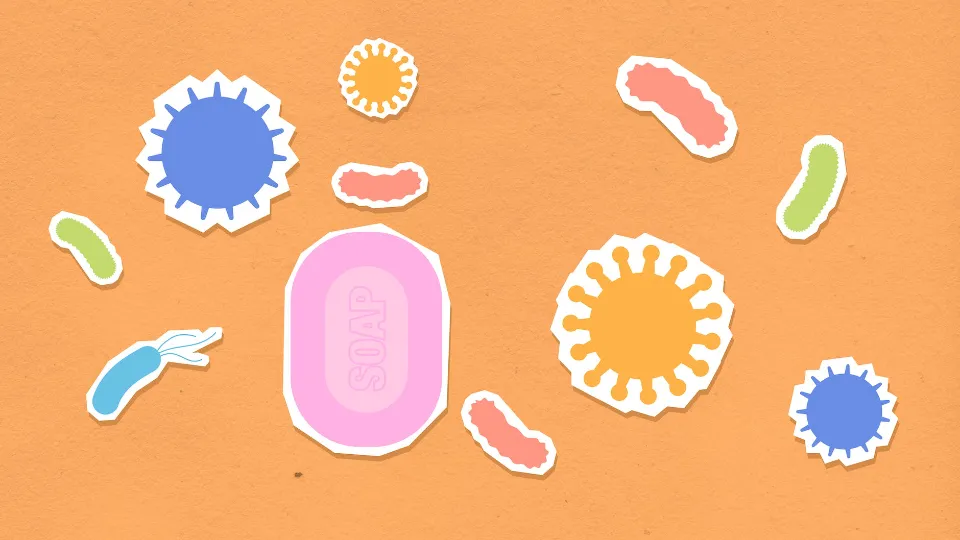One of the most prevalent infections, particularly in women, is urinary tract infection (UTI). The standard of care is antibiotics, but how can you tell if and when the medication is effective in treating your UTI?
When symptoms, such as frequency of urination or painful urination, improve or when an antibiotic course is almost complete, people can usually tell if they have a urinary tract infection (UTI).
Read on for information about the signs show UTI is gone and what to do if you don’t see them.
What Are UTIs?
UTIs are frequent infections that develop when bacteria, frequently from the skin or rectum, pass through the urethra and infect the urinary tract. The infections can affect several parts of the urinary tract, but the most common type is a bladder infection (cystitis).
Symptoms of a bladder infection can include:
- Pain or burning while urinating
- Frequent urination
- Feeling the need to urinate despite having an empty bladder
- Bloody urine
- Pressure or cramping in the groin or lower abdomen
Symptoms of a kidney infection can include:
- Fever
- Chills
- Lower back pain or pain in the side of your back
- Nausea or vomiting
The symptoms of a UTI may not be communicated to you by younger children. While fever is the most common sign of UTI in infants and toddlers, most children with a fever do not have a UTI. If you have concerns that your child may have a UTI, talk to a healthcare professional.

How Long Do UTIs Usually Last?
The majority of UTIs are uncomplicated, which means they affect the bladder and the lower urinary tract and don’t have any additional symptoms that would complicate treatment. If left untreated, an uncomplicated Before body can fight it off, but UTI will frequently persist for 3 to 7 days.
However, it’s important to note that there is some risk with leaving a UTI untreated, as your body might not be able to fight off the infection, resulting in a more severe infection that lasts longer. In fact, according to a number of studies, 25–50% of UTIs can resolve on their own within a week without the need for treatment, but that also means that 50–75% do not.
Depending on the antibiotic prescribed, the infection typically goes away within 3 to 7 days when using antibiotics.
These are typical lengths for UTIs, but treatment can be up to 2 weeks for those with complicated UTIs, which can include cases with:
- Pregnancy
- Post-menopausal
- Something abnormal in the urinary tract (e.g., kidney stones)
- Antibiotic-resistant bacteria
Men who get a UTI are frequently thought to have complicated UTIs, and their treatment usually takes 7–14 days to treat just a bladder infection. This is noteworthy.
Signs Show UTI Is Gone
Symptom Relief
When the symptoms lessen, you can easily tell if a UTI is going away.
Some of the basic symptoms of a UTI and how a person might notice they are improving include:
- Frequent urination: The need to use the restroom less frequently may be noticed by people.
- Painful urination: As the UTI gets better, a person might experience less stinging or burning.
- Strong-smelling urine: People might notice that their urine is becoming clearer and smelling normally.
- Lower abdominal pain: As the infection disappears, the stomach pain brought on by a UTI will lessen.
- Fever or chills: As the UTI clears, a person’s temperature may decrease.
Individuals may experience different symptoms. But just because a person’s symptoms are getting better doesn’t mean the infection has completely gone away. Anyone with a UTI must strictly adhere to all medical advice and take all prescribed medications for the full recommended course.
A Course of Antibiotics
Antibiotics kill the infection-causing bacteria and are the most common treatment for UTIs. Usually, the UTI is gone by the time a person is at or near the end of the course of antibiotics.
However, it is important to finish the entire course of antibiotics, even if the symptoms ease and the person starts to feel better. Stopping the antibiotics early may lead to the bacteria becoming resistant to the medication, making it more challenging to treat the infection in the future.
Additionally, if a person stops taking the antibiotics before the infection has fully cleared, the remaining bacteria may multiply, leading to a recurrence of the infection.
Home Test Strips
Home test strips can help people determine if a UTI is going away by detecting the presence or absence of certain substances in the urine.
These test strips can be purchased over the counter (OTC). They typically test for the presence of nitrite or leukocyte esterase, which are both indicators of a Urinate on the test strip as directed by the product’s label’s instructions and color scheme. UTI.
Some tests check pH levels and look for the presence of blood in the urine. The typical pH range of urine is between 4.5 and 8.0, which is slightly acidic. A UTI may be indicated by a pH of 8.5 or 9.
There are also home test strips that people can mail to a lab for healthcare professionals to determine the presence of bacteria in the urine.
People should not use these tests in place of seeing a doctor, but they can be helpful for people to check if their UTI is going away.
You may want to read: Use Apple Cider Vinegar for UTI – Is It True? – Elder VIP

What to Do If a UTI Isn’t Going Away?
If your UTI symptoms last longer than three days or worsen at any point, it is advised that you see a doctor if you have not taken an antibiotic.
If, despite taking the antibiotic as directed, your symptoms do not disappear within three days, speak with your doctor as they may want to switch you to a different kind of antibiotic.
Summary
When a urinary tract infection goes away, people may notice an improvement in symptoms, such as less frequent or less painful urination, a decrease in the intensity of any other symptoms, and resolution of any unusual urine odor or appearance. People can also use home test strips to determine if their UTI has disappeared.







